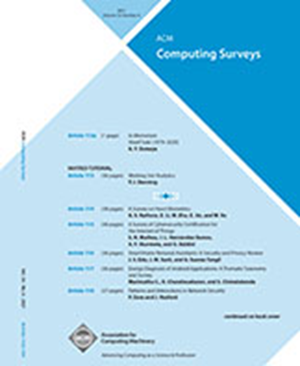深度学习几何优化研究综述:从欧几里得空间到黎曼流形
IF 23.8
1区 计算机科学
Q1 COMPUTER SCIENCE, THEORY & METHODS
引用次数: 0
摘要
深度学习(DL)在处理复杂的人工智能任务方面取得了显著的成功。神经网络的标准训练采用反向传播来计算梯度,并在欧氏空间中使用各种优化算法\(\mathbb {R}^n \)。然而,这种优化过程面临着局部最优问题和梯度消失爆炸问题等挑战。为了解决这些问题,黎曼优化为解决深度学习中的优化问题提供了一个强大的扩展。通过结合先验约束结构和底层几何信息的度量信息,基于黎曼优化的深度学习提供了更稳定可靠的优化过程,并增强了对复杂数据结构的适应性。本文综述了几何优化在深度学习中的应用,包括几何优化的基本步骤、各种几何优化器以及黎曼流形的一些概念。此外,它还研究了几何优化在不同深度学习网络中用于不同任务的各种应用,并讨论了在歧管上实现优化的典型公共工具箱。本文还比较了不同深度几何优化方法在图像识别场景下的性能。最后,本文阐述了该领域未来的机遇和挑战。本文章由计算机程序翻译,如有差异,请以英文原文为准。
A Survey of Geometric Optimization for Deep Learning: From Euclidean Space to Riemannian Manifold
Deep Learning (DL) has achieved remarkable success in tackling complex Artificial Intelligence tasks. The standard training of neural networks employs backpropagation to compute gradients and utilizes various optimization algorithms in the Euclidean space \(\mathbb {R}^n \) . However, this optimization process faces challenges, such as the local optimal issues and the problem of gradient vanishing and exploding. To address these problems, Riemannian optimization offers a powerful extension to solve optimization problems in deep learning. By incorporating the prior constraint structure and the metric information of the underlying geometric information, Riemannian optimization-based DL offers a more stable and reliable optimization process, as well as enhanced adaptability to complex data structures. This article presents a comprehensive survey of applying geometric optimization in DL, including the basic procedure of geometric optimization, various geometric optimizers, and some concepts of the Riemannian manifold. In addition, it investigates various applications of geometric optimization in different DL networks for diverse tasks and discusses typical public toolboxes that implement optimization on the manifold. This article also includes a performance comparison among different deep geometric optimization methods in image recognition scenarios. Finally, this article elaborates on future opportunities and challenges in this field.
求助全文
通过发布文献求助,成功后即可免费获取论文全文。
去求助
来源期刊

ACM Computing Surveys
工程技术-计算机:理论方法
CiteScore
33.20
自引率
0.60%
发文量
372
审稿时长
12 months
期刊介绍:
ACM Computing Surveys is an academic journal that focuses on publishing surveys and tutorials on various areas of computing research and practice. The journal aims to provide comprehensive and easily understandable articles that guide readers through the literature and help them understand topics outside their specialties. In terms of impact, CSUR has a high reputation with a 2022 Impact Factor of 16.6. It is ranked 3rd out of 111 journals in the field of Computer Science Theory & Methods.
ACM Computing Surveys is indexed and abstracted in various services, including AI2 Semantic Scholar, Baidu, Clarivate/ISI: JCR, CNKI, DeepDyve, DTU, EBSCO: EDS/HOST, and IET Inspec, among others.
 求助内容:
求助内容: 应助结果提醒方式:
应助结果提醒方式:


